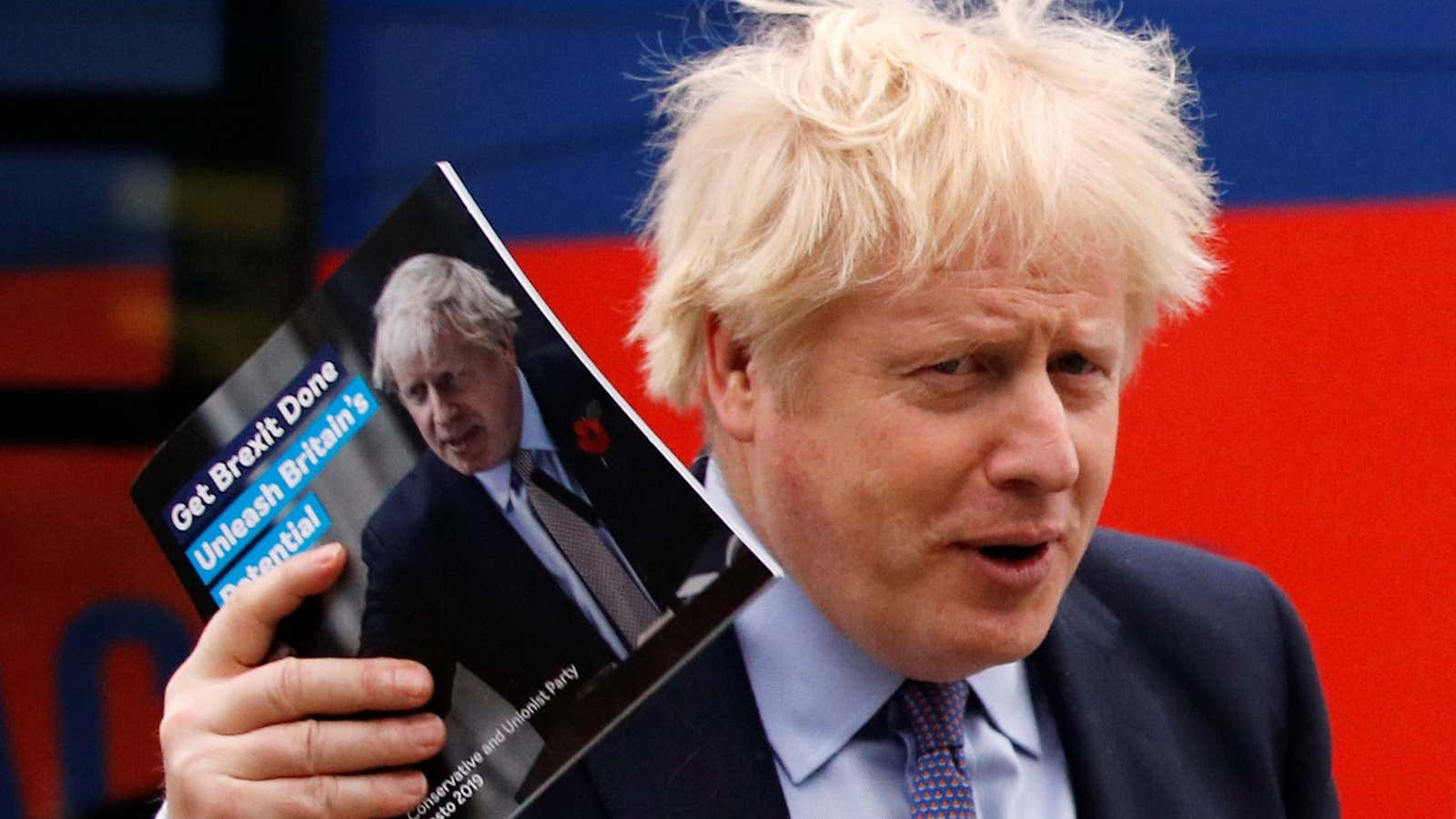The UK could block people without an ID from voting, should prime minister Boris Johnson win a majority in Parliament in the Dec. 12 general election. Johnson’s Conservative party listed the introduction of a voter ID requirement as a campaign pledge (pdf) in its election manifesto.
At the moment, voters in England, Wales, and Scotland simply turn up at their polling station on election day. They must provide their name and full address, and be registered to vote beforehand.
The Conservative manifesto said a voter ID requirement is intended to combat fraud and “protect the integrity of our democracy.” The party previously suggested a similar change to voting rules in its manifestos in 2017 (“ensure that a form of identification must be presented before voting”) and 2015 (“ensuring the Electoral Commission puts greater priority on tackling fraud and considers insisting on proof of ID to vote.”)
Limited trials of a mandatory voter ID have been carried out in a few constituencies for local elections in 2018 and 2019. In total, around 3,000 people were turned away from the polling booth for not having proper ID, and 30-40% of them never returned. In comparison, 181 people have been accused of impersonating someone else at the polling station in all elections since 2010, according to the Full Fact fact-checking service.
The latest estimates available suggest about 3.5 million Brits don’t have photo ID, which is roughly 7.5% of the 45 million people registered to vote today. (Johnson’s government has said it will offer a way for voters to apply for a free “local electoral identity document.”) Non-white Brits are less likely to hold such documents, and they vote mostly for Labour and parties other than the Conservatives.
Meanwhile, the Labour party wants to reduce the voting age to 16, as outlined in its own election manifesto (pdf). Labour also plans to give “full voting rights” to all residents in the UK, and introduce a system of automatic registration. These measures would benefit the party, given its high level of support among non-white voters and young people.
Though both proposals are evidently self-serving, the similarities stop there. The Conservative pledge would likely reduce turnout, while Labour’s plan purports to represent the “largest extension of the franchise in generations.” (The voting age was 21 until 1969, when Parliament under a prior Labour government lowered it to 18.)
Despite the Conservatives’s past voter ID pledges, such a requirement has not been introduced following their previous two election victories. Still, reiterating support for stricter voting echoes similar moves by US Republicans, who in recent years have pushed voter ID rules in various states that disproportionately affect minority voters.
